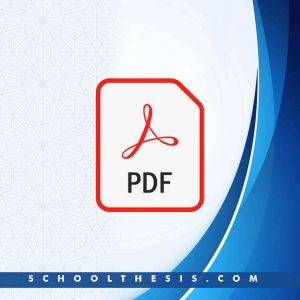
Socio-economic and Cultural Analysis of Food Security Among Selected Ethnic Groups in North Central Nigeria
Quick Navigation for Final Year Undergraduates, Masters (Thesis), and Ph.D. Dissertation Students Who Need Our Services on Their Research Works
| Find More Project Topics | FIND HERE |
| Hire Us for Thesis Works | HIRE NOW |
| Hire Us for Project Works | HIRE NOW |
| Hire Us for Seminar Works | HIRE NOW |
| Hire Us for Assignments | HIRE NOW |
| Hire Us for Proposals | HIRE NOW |
| Contact Us | HERE NOW |
Abstract on Socio-economic and Cultural Analysis of Food Security Among Selected Ethnic Groups in North Central Nigeria
The broad objective of the study was to investigate the socio-economic and
cultural dimensions of food security among selected ethnic groups in North Central
Nigeria. Specifically, the study was designed to: determine food culture and practices of
the respondents; determine the household food security status (energy availability) across
ethnic groups; determine dietary diversity of the households across cultures; identify
perceived constraints militating against household food security; and describe the coping
strategies utilized by the households during food shortages. Seven hypotheses and a
conceptual framework were developed for the study. The population of the study consists
of all ethnic groups in North Central Nigeria. The zone comprises about 60 ethnic groups.
Specifically, the study was carried out among Tiv, Igala and Eggon ethnic groups of
Benue, Kogi and Nasarawa States. A multi-stage sampling technique was adopted for the
study. Three ethnic groups (Tiv, Igala and Eggon) and one village per ethnic group were
purposively selected based on differences in language and culture. The total sample size
for this study was 340 respondents, made up of 120 Tiv households, 108 Igala households
and 112 Eggon households. Data for the study were collected through the use of interview
schedule.
The data were analyzed using frequency, percentage, mean score, food security
index, factor analysis; the comparative (reduced) coping strategy index (CSI), logit
regression, Kruskal-Wallis (H) statistic and correlation. The study revealed that majority
(91.2%) of the respondents were males. The mean age of the respondents was 43.36 years
while their mean household size was 5 members. The mean farm size of the respondents
was 3.3 hectares while their average fertilizer use was 4.73kg/ha per annum. Majority
(53.2%) had no formal education; majority (89.4%) had no access to credit and about
53.2% did not participate in non-farm activities. The average output from own production
was 6211.79kg and majority (60%) of the respondents possessed goats. The mean farm
income; mean non-farm income and average annual household income for the
respondents were 69,539.00 naira; 22,486.00 naira and 91,752.00 naira, respectively.
Majority (93.2%) of husbands took decisions on household agricultural activities; all
respondents practiced subsistence farming; and 94.7% practiced mixed cropping.
Majority (88.6%) of the respondents preferred major crops; about 92.5% acquired
farmland through inheritance; and the family (67. %) constituted the main source of
labour. Majority of the respondents used traditional processing (97.4%) and storage
(96.2%) methods. Majority (95.4%) of husbands controlled household income and
Disclaimer
This research material is intended for academic use only and should be used as a guide in constructing your research project and seminar presentation. You should never duplicate the content word for word (verbatim), as SCHOOLTHESIS.COM will not be held liable for anyone who does.
The purpose of publishing this material is to alleviate the stress of hopping from one school library to the next in search of research materials. This service is lawful because all educational institutions allow students to read past projects, papers, books, and articles while working on their own.
SCHOOL THESIS is merely giving this information as a research reference. Use the document as a reference or structure for your own research paper. This paper’s content should be able to assist you in coming up with new ideas and thoughts for your own study
Socio-economic and Cultural Analysis of Food Security Among Selected Ethnic Groups in North Central Nigeria research paper, should only be used as a guide.